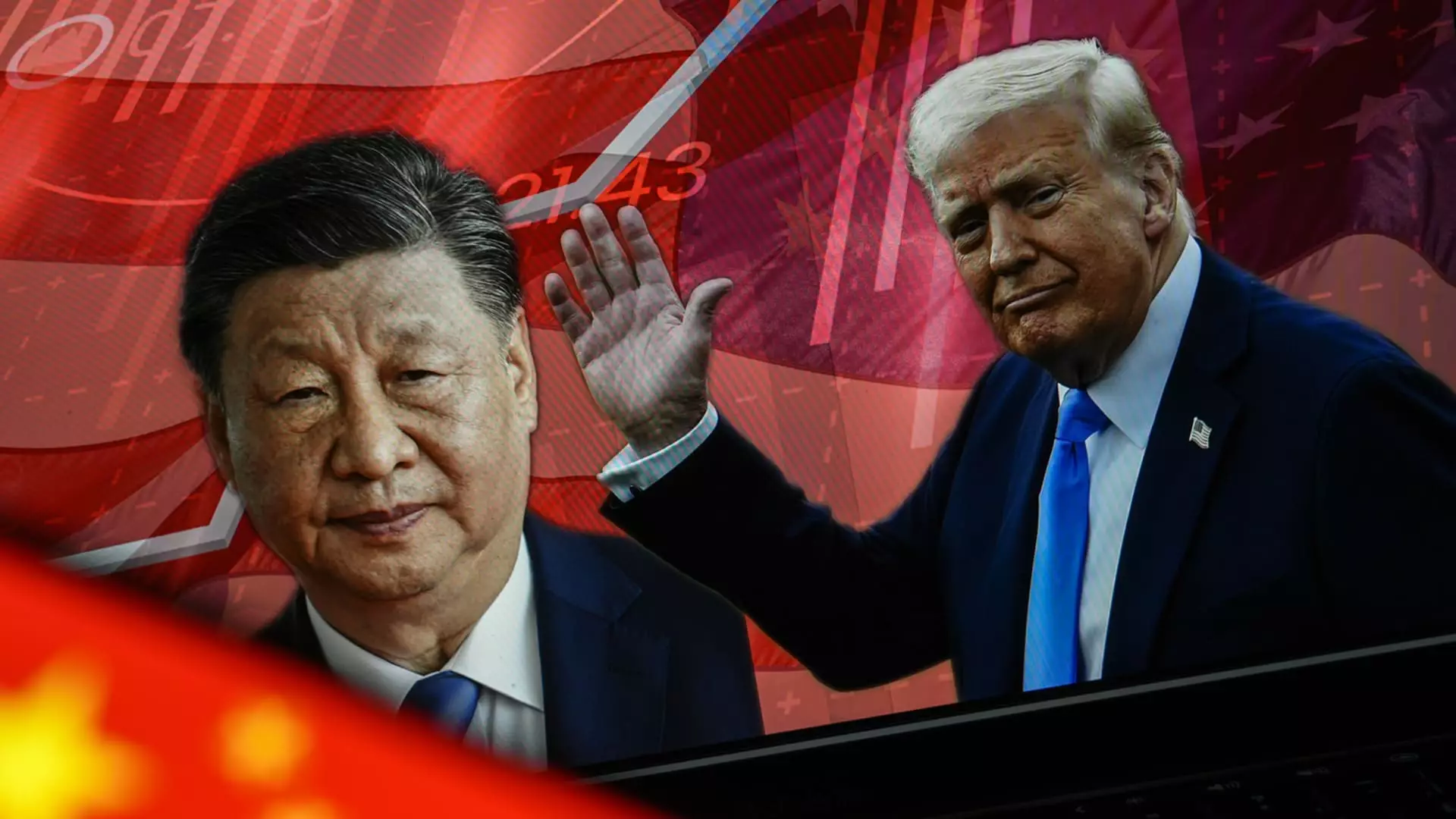The trade war between the United States and China, once characterized by simple tariff exchanges, has entered a new and more complex phase. China has made it abundantly clear that it will not just continue reciprocating U.S. tariffs but is prepared to escalate its strategy in unexpected directions. This ambiguity signals a worrying shift away from traditional economic conflict towards actions that could have profound long-term implications for American businesses and global markets.
As of last week, Chinese leadership has dismissed U.S. tariffs as a “joke,” suggesting a lack of seriousness in American economic policy and a greater resolve within Beijing to resist what it perceives as aggressive bullying. This rhetoric is not merely political posturing; it underscores China’s intent to pivot away from the familiar framework of tariff-for-tariff retribution. Instead, the focus has switched to non-tariff barriers that can affect the American services sector, where the U.S. actually boasts a significant trade surplus.
The Shift Towards Non-Tariff Measures
Rather than retaliating purely through increased tariffs—which have reached alarming rates of up to 245%—China is adopting a more multifaceted strategy that utilizes export controls, antitrust probes, and a list of so-called “unreliable entities.” This drastic pivot opens up new battlefronts where American companies might find themselves vulnerable, particularly in sectors where trade dynamics have traditionally favored them.
Targeting U.S. services such as legal, travel, and consultancy areas is especially indicative of a broader strategy by China to undermine American competitiveness. With a keen focus on industries where the U.S. has historically thrived, such as education and entertainment, Beijing has strategically chosen to hit sectors that resonate politically at home while causing reputational damage in the U.S. Those sectors are not only economically important but also essential to the cultural influence of America abroad—essentially a two-pronged attack on both economic standing and soft power.
The Impact on American Businesses
The most immediate concern for American businesses comes from China’s recent actions against the aviation giant Boeing. Such a significant move by a key player in the global market foreshadows broader disruptions that could extend far beyond the airline sector. Already reeling from difficulties related to quality control and fierce international competition, Boeing’s predicament becomes even more dire as Chinese airlines are ordered to stop new purchases. This situation reveals not only vulnerabilities within individual companies but also the interconnectedness of global trade networks, which can be turned upside down with one strategic policy change from Beijing.
On a broader scale, as tensions escalate, companies like Google and DuPont are facing scrutiny that could vastly limit their growth opportunities in the lucrative Chinese market. The ongoing expansion of Chinese regulations targeting foreign firms could restrict access to key markets, forcing American companies to reassess their strategies and possibly stifle innovation.
The Broader Economic Ramifications
These retaliatory moves signal a potential decoupling of the economies of the U.S. and China—one of the most formidable economic partnerships in history. Analysts like Wendy Cutler recognize the fundamental threat posed by this separation, not just in quantitative trade figures but in the qualitative impacts on people-to-people ties, knowledge exchange, and collaborative innovations. The educational sector, particularly, is pivotal as many Chinese students studying in the U.S. contribute significantly to the economy—should Chinese students indeed pull back, the financial implications would be profound.
Additionally, China’s enforcement of export licenses on rare-earth minerals poses a direct threat to U.S. technological superiority, particularly in cutting-edge industries like semiconductors and clean energy. In this context, the situation is fraught with risks; it’s not just a softening of financial agreements at stake but a potential technological arms race that could disadvantage the U.S. for generations to come.
Navigating Uncharted Waters
The prospects of a return to negotiation may seem grim. While both sides have expressed a willingness to engage in dialogue, it remains contingent on terms that ensure equity—a principle still largely absent from the current U.S.-China dynamic. Trump’s administration, boasting of a hardline stance, has exacerbated the situation, leaving little room for conciliatory gestures.
This complex web of retaliation, geopolitical maneuvering, and economic dependency might evoke a sense of fatalism in both nations. As the stakes rise, achieving a resolution without significant self-inflicted harm seems increasingly unlikely, echoing the concerns voiced by economists and analysts alike. The critical question remains: will either side muster the courage to recalibrate its approach before the situation culminates in a detrimental fallout that reshapes not only the economies of both countries but the global economic landscape?



Leave a Reply